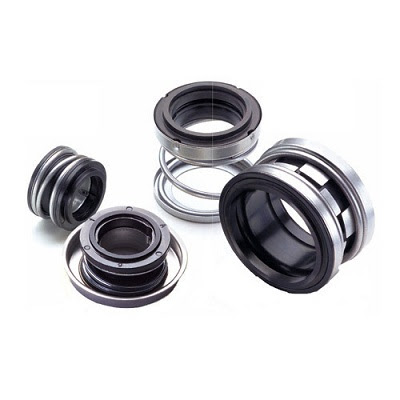Exploring the World of Gasket Material: Types and Applications
Gasket materials are the unsung heroes of the industrial world. These unassuming components play a critical role in ensuring the integrity of various systems, from engines to pipelines. In this article, we will dive deep into the world of gasket materials, exploring different types, their properties, and applications.
Understanding Gasket Materials
Gaskets are mechanical seals used to fill the gap between two or more mating surfaces. They prevent leakage of gases or liquids, maintain proper pressure, and provide a barrier against contaminants. Gaskets are found in a wide range of industries, including automotive, manufacturing, oil and gas, and more. To perform effectively, gaskets must be made from materials that match the specific requirements of the application.
Types of Gasket Materials
1. Rubber Gaskets: Rubber gaskets, commonly made from materials like neoprene, EPDM, or silicone, are known for their flexibility and resistance to water, chemicals, and temperature variations. They are widely used in plumbing, automotive, and HVAC systems.
2. Cork Gaskets: Cork gaskets are excellent for applications requiring compressibility and resilience. They are often used in engines, particularly for sealing oil and coolant passages.
3. Paper Gaskets: Paper gaskets, made from materials like cellulose or cardboard, are cost-effective and suitable for low-pressure applications, such as in air and fuel filters.
4. Metal Gaskets: Metal gaskets, including those made from stainless steel, copper, or aluminum, are ideal for high-temperature and high-pressure environments. They are commonly used in the oil and gas industry and for sealing flanges.
5. Composite Gaskets: Composite gaskets combine different materials to achieve specific properties. For example, graphite-filled gaskets offer excellent heat resistance and are used in petrochemical applications.
Properties of Gasket Materials
Gasket materials are chosen based on their properties, which include:
1. Temperature Resistance: Some applications require gaskets that can withstand extreme temperatures, such as those in engines or industrial furnaces. Metal and graphite-filled gaskets excel in high-temperature environments.
2. Chemical Resistance: Gaskets must resist the chemicals they come into contact with. Rubber gaskets are known for their excellent chemical resistance.
3. Pressure Rating: The pressure rating of a gasket material determines its suitability for a specific application. Metal gaskets are preferred for high-pressure systems.
4. Compressibility: Gaskets need to be able to deform and fill irregularities in mating surfaces to create a proper seal. Cork and rubber gaskets are highly compressible.
Applications of Gasket Materials
1. Automotive: Gaskets are used in engines to seal various components, including cylinder heads, oil pans, and exhaust systems.
2. Manufacturing: Gaskets are vital in manufacturing processes to prevent leaks in hydraulic and pneumatic systems.
3. Oil and Gas: In the oil and gas industry, gaskets are used in pipelines, valves, and flanges to prevent leakage of hazardous substances.
4. HVAC Systems: Gaskets help maintain the efficiency of heating, ventilation, and air conditioning systems by sealing ducts and joints.
5. Aerospace: Gaskets are used in aircraft engines and systems to ensure safety and reliability.
6. Electronics: Electronic devices often contain gaskets to protect against moisture and contaminants.
Gasket materials are diverse and versatile, catering to a wide range of industries and applications. Choosing the right gasket material is crucial to ensure the proper functioning and safety of systems. Whether it's rubber for flexibility, metal for high pressure, or cork for compressibility, each gasket material has its unique strengths. Understanding these materials and their properties is essential for engineers and manufacturers to make informed decisions about gasket selection. So, the next time you encounter a leak-free engine, pipeline, or HVAC system, you'll know that gasket materials are the unsung heroes making it all possible.




Comments
Post a Comment